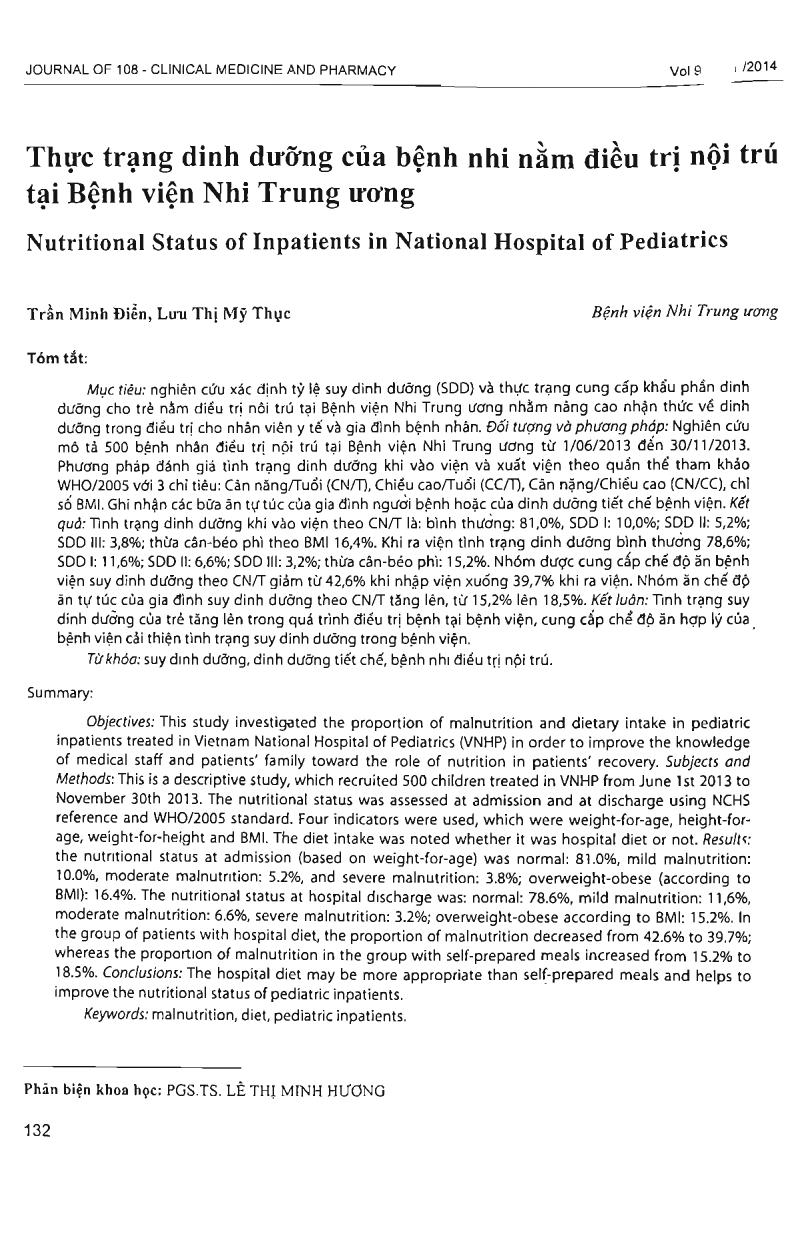
Objectives: This study investig-ated the proportion of malnutrition and dietary intake in pediatric inpatients treated in Vietnam National Hospital of Pediatrics (VNHP) in order to improve the knowledge of medical staff and patients' family toward the role of nutrition in patients' recovery. Subjects and Methods: This is a descriptive study, which recruited 500 children treated in VNHP from June 1 st 2013 to November 30th 2013. The nutritional sta.tus was assessed at admission and at discharge using NCHS reference and WHO/2005 standard. Four indicators were used, which were weight-for-age, height-forage, weight-for-height and BM!. The diet intake was noted whether it was hospital diet or not. Results: the nutritional status at admission (based on weight-for-age) was normal: 81.0 percent, mild malnutrition: 10.0 percent, moderate malnutrition: 5.2 percent, and severe malnutrition: 3.8 percent; overweight-obese (according to BMI): 16.4 percent. The nutritional status at hospital discharge was: normal: 78.6 percent, mild malnutrition: 11,6 percent, moderate malnutrition: 6.6 percent, severe malnutrition: 3.2 percent; overweight-obese according to BMI: 15.2 percent. In the group of patients with hospital diet, the proportion of malnutrition decreased from 42.6 percent to 39.7 percent; whereas the proportion of malnutrition in the group with self-prepared meals increased from 15.2 percent to 18.5 percent. Conclusions: The hospital diet may be more appropriate than self-prepared meals and helps to improve the nutritional status of pediatric inpatients.
- Đăng nhập để gửi ý kiến
